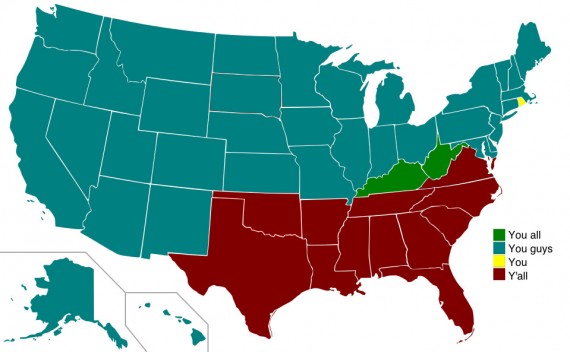People who use a local accent or dialect occasionally confront discrimination. According to a recent survey conducted in the United Kingdom, 28% of people reported being treated differently, just because of the way they speak. At the same time, 80% of employers admitted to discriminating against people based on their accent. Of course, neither accents nor dialects are legally-protected categories, so pressure to conform is very real. And while YouTube provides virtual coaching on “The Queen’s English” (called Received Pronunciation), online databases document the remarkable richness of the English language as it can be, and actually is, spoken. This week, listen closely to how both you and the people around you speak. Are you living in a country where English is the dominant language? Whether you are or aren’t, can people tell you are American? Does this make you self-conscious, or are you proud to “sound different?” Alternatively, can you tell where people are from when they speak to you? Among your friends and acquaintances, is there pressure to conform, to use language in a certain way? Are people treated differently based on their willingness (or ability) to conform to a normalized accent?
Ryan Hildebrandt ’17, Psychology & Japanese
The two main, or at least famous, regions in Japan are Kanto and Kansai, the former being home to the current capital, Tokyo, and the latter the old capital, Kyoto, as well as several other major cities. Between these two regions, there’s sort of a rivalry akin to something you would see between New York City and Philadelphia, or Texas and anywhere in the world claiming to be better than Texas. Besides some sports-team loyalties and a few signature foods here and there, the main difference between the two regions is the dialect of Japanese spoken. Kansai, although largely metropolitan, is considered by people within and without to be countryside, made up stereotypically of farmers and people who would be scared by the sight of a skyscraper (I can tell you, this is very, very false). Within Kansai, the dialect spoken, known as Kansai-ben, has become famous in Japan and abroad as being like an entirely different language. It might be the case that if you put a person who lived their entire life in Kanto and only spoke Kanto-ben into conversation with someone speaking the thickest, most heavily laid on version of Kansai-ben ever heard on this earth, there might be some difficulty communicating. The reality is, the differences lie mostly in a few key words and conjugations that, while they do stand out from Kanto-ben, aren’t terribly difficult or troublesome to understand, even to non-native speakers. Even so, the rivalry and dialectic schism continues between the two regions (although as far as I’m concerned, Kansai-ben is more fun).


